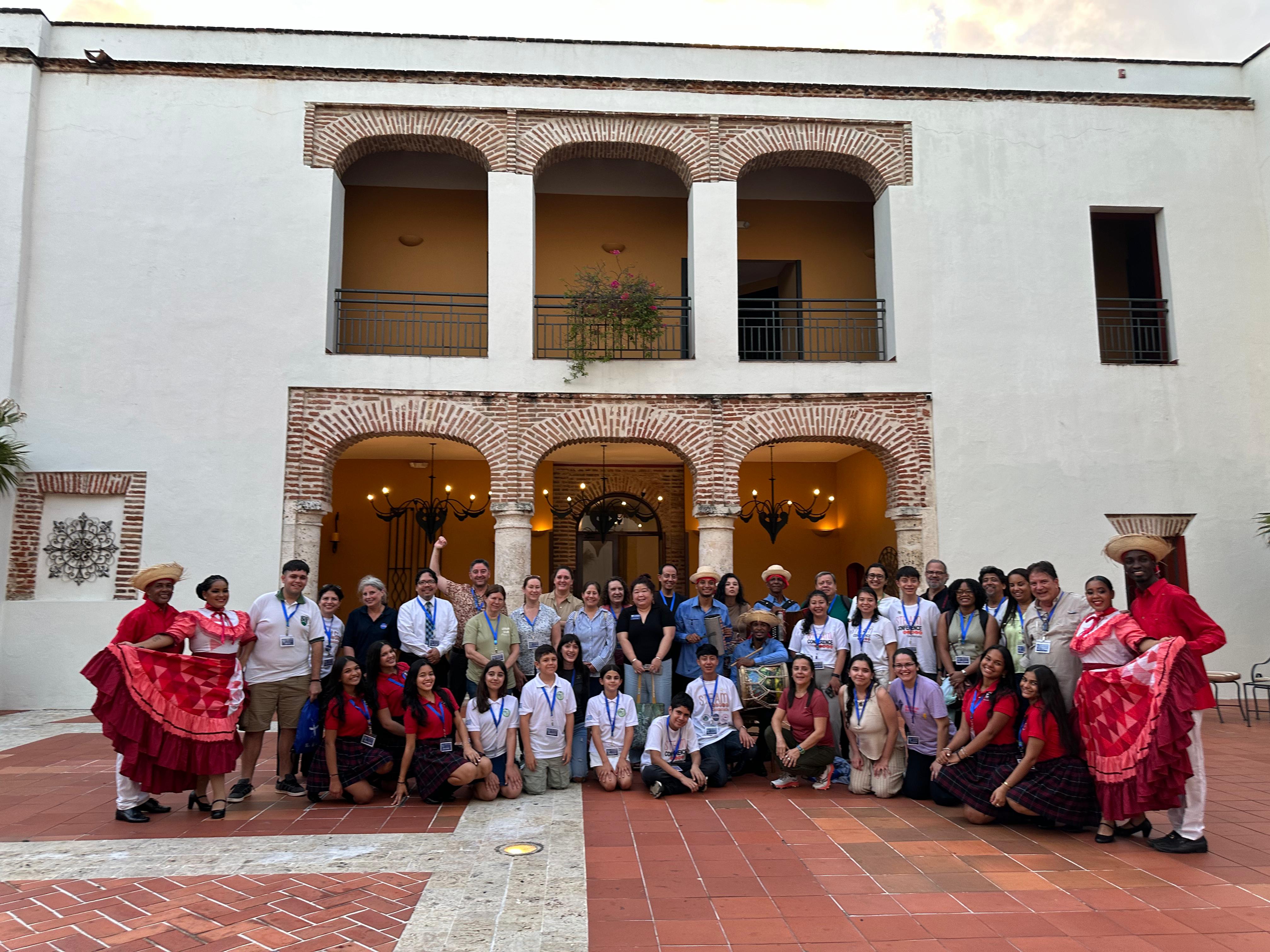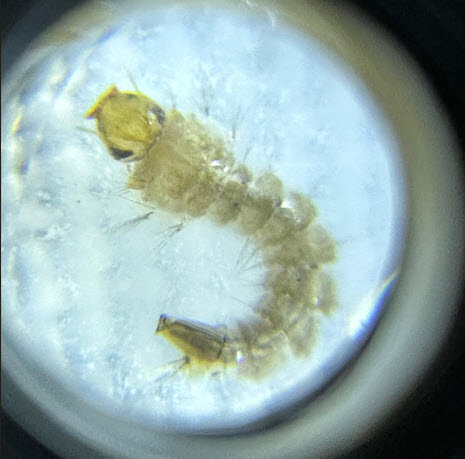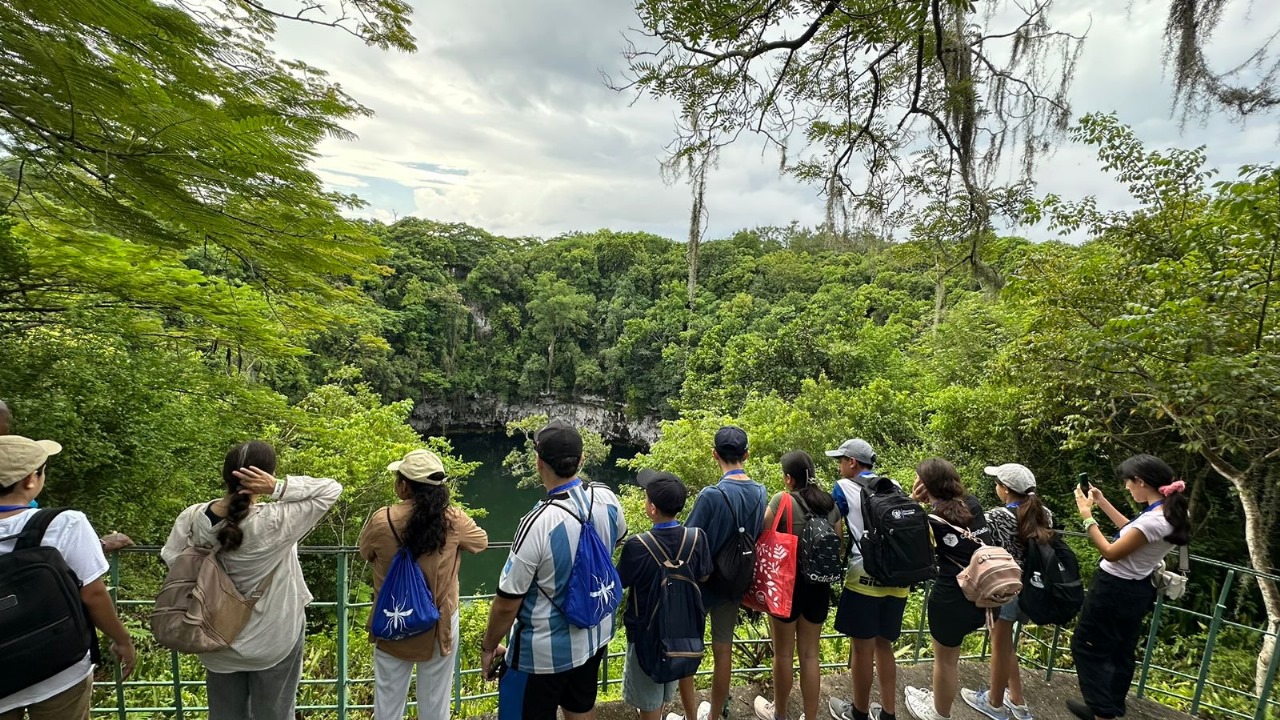Stars and STEM Stories
GLOBE Latin America and Caribbean: 2024 Regional Meeting Achievements and Collaboration in Santo Domingo
From 22 to 24 October 2024, Santo Domingo, Dominican Republic, became the stage for the 2024 GLOBE Latin America and Caribbean Regional Meeting. This event brought together coordinators, educators, and students from across the region with a shared purpose: to strengthen collaboration in environmental sciences and showcase transformative program advancements.

Participants at the 2024 Latin America and Caribbean Regional Meeting.
One of the meeting’s 
The meeting also featured high-level presentations, including one by Dr. Di Yang (University of Florida) on the use of remote sensing and predictive models to anticipate outbreaks of mosquito-borne diseases, and another by Natalia Bermúdez (NASA), who shared insights into the NASA Capacity Building Program. These sessions emphasized the vital role of technology in environmental monitoring and disease prevention.
Another major milestone was the presentation of the Trees Within LAC Campaign, now in its second year. During the meeting, participants discussed and defined the campaign's focus for 2025—creating three specialized Working Groups focused on urban heat islands, mangroves, and mosquitoes. This approach ensures that the campaign addresses the unique environmental challenges of each country, aligning with regional priorities.
Groups of students and educators from Uruguay, Argentina, and Colombia attended thanks to program stipends, whereas a team from Guatemala, led by its teacher Waleska Aldana Segura, overcame significant challenges to attend independently. During the second session, students presented their research projects, culminating in an enriching cultural exchange. Additionally, they enjoyed an agenda that included visits to iconic sites such as Los Tres Ojos Ecological Park, the Cave of Wonders, and the Columbus Lighthouse—blending history, culture, and ecology.

Students visit Cueva de los Tres Ojos, an ecological national park featuring several stunning underground caves.
The impact extended beyond the meeting. On 25 and 26 October, a special workshop for educators was held in Santo Domingo, led by Ana Prieto (Argentina), Claudia Caro (Peru), and Andrea Ventoso (Uruguay). During this workshop, 70 teachers were certified in the Biosphere and Atmosphere Protocols. This achievement reflected GLOBE's commitment to advanced training and regional collaboration. In total, the meeting and workshop yielded an impressive 2,395 data points, marking a significant milestone for the program.
The human impact of GLOBE was vividly captured in two editions of a student podcast recorded after the meeting. Here are some reflections:
Traveling allowed me to meet new people from different countries
and learn a lot about a historic culture.
—17-year-old student, Argentina
Presenting my research project to everyone helped me overcome my
shyness and feel more confident in myself.
—13-year-old student, Colombia
GLOBE gave me many tools to learn and brought me countless
experiences. It was a generator of opportunities.
—11-year-old student, Uruguay.
These experiences underscore how GLOBE not only connects cultures but also fosters essential skills such as resilience, self-esteem, and confidence in young participants. It is here that young scientists are born, prepared to address environmental challenges with knowledge and determination.
The 2024 GLOBE LAC Regional Meeting not only achieved its scientific and educational goals but also left an indelible mark on its participants, proving that science, collaboration, and culture can transform lives and communities.
News of the meeting was published around the country via numerous media outlets:
- 10 Noticia
- A Todo Terreno
- Atmósphera Digital
- Bavaro News
- Fisiculturismo Dominicano
- Informando
- Kabina Radio34
- Punta Cana Post
- RD FIRMA Autorizada
Images courtesy of the LAC RCOs.





